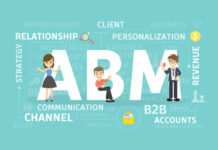Employees are important to productivity, customer satisfaction, and overall business success when running a B2B corporation. However, a company’s aim and success cannot be realized if an employee is improperly or insufficiently trained.
There is a danger of poor performance when it comes to the remote staff since there is no on-the-job training or in-person communication.
Why is it critical to onboard remote workers?
This question has two possible responses. To begin with, the era of remote employees has here. Unfortunately, the COVID pandemic has forced many organizations to be more flexible in their operations. As a result of pandemic-related closures and quarantines at the peak of COVID, doing business electronically proliferated.
Indeed, more than 45% of the American workforce today works remotely in either a full-time or part-time hybrid job. Furthermore, employees are overjoyed with this growth and desire more remote work options. In summary, remote work is here to stay and is expected to grow in the future.
Second, an inadequately trained remote worker might result in costly errors, decreased productivity, and lost time rectifying errors or retraining. Furthermore, failing to adequately onboard remote workers may result in low morale, increased staff turnover, and substandard productivity. All of these repercussions can lead to decreased sales and a loss of client loyalty since poor customer service or work performance continually leads to a loss of customer retention and sales.
Find the Most Effective Onboarding Solution
Fortunately, remote workers may already access your company’s files and data through the internet. This provides providing remote staff with access to training resources a breeze. But what about effective onboarding solutions and training practices? This is where using a learning management system may be really beneficial for your B2B organization.
To clarify, a learning management system (LMS) is specially built to tick all of the boxes in terms of staff training. Furthermore, this system can keep your staff in compliance, improve interoffice interactions, and give data and statistics on how your training tactics are helping employees learn and thrive.
Furthermore, an LMS integrates seamlessly across devices, allowing your staff to access your training materials from their computers, phones, or tablets. An LMS houses all of these training materials, such as instructional films, standard operating procedures, and FAQs. This makes training content simply available and findable for all employees, whether they are remote or in-office.
Keep an Open Door Policy
In a remote work environment, we recognize that an open-door policy is an oxymoron. You may find ways to make oneself available to new recruits while they are learning the ropes. If new remote employees have any questions, encourage them to contact you or a supervisor.
Far too often, new employees are scared or unwilling to ask questions for fear of appearing uneducated. Of course, this is not the case. Employees who are at ease asking questions are more likely to succeed in their jobs because they have access to the necessary information when it is needed.
Provide remote personnel with the necessary tools.
Nothing is more infuriating than hiring a remote employee with high potential only to discover they do not have access to the required tools. Some companies equip remote workers with company-supplied laptops that include all software, internal platforms, email access, and intranet access so that a new virtual worker may get started straight immediately.
If your B2B company cannot provide company-owned laptops, at the very least, provide employees with tools to help them do their tasks better. Give them headphones, for example, if they are in charge of telemarketing or customer service over the phone.










